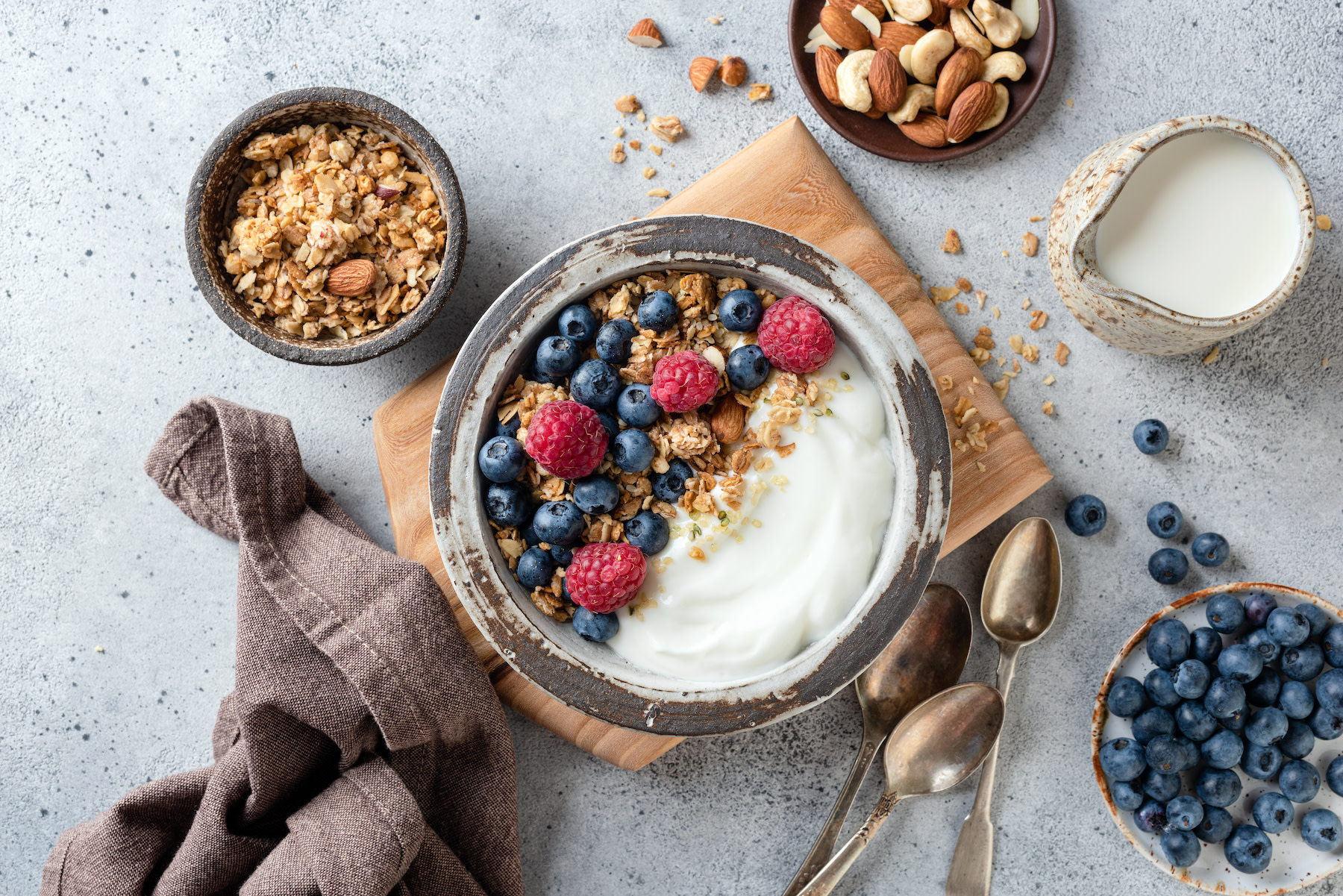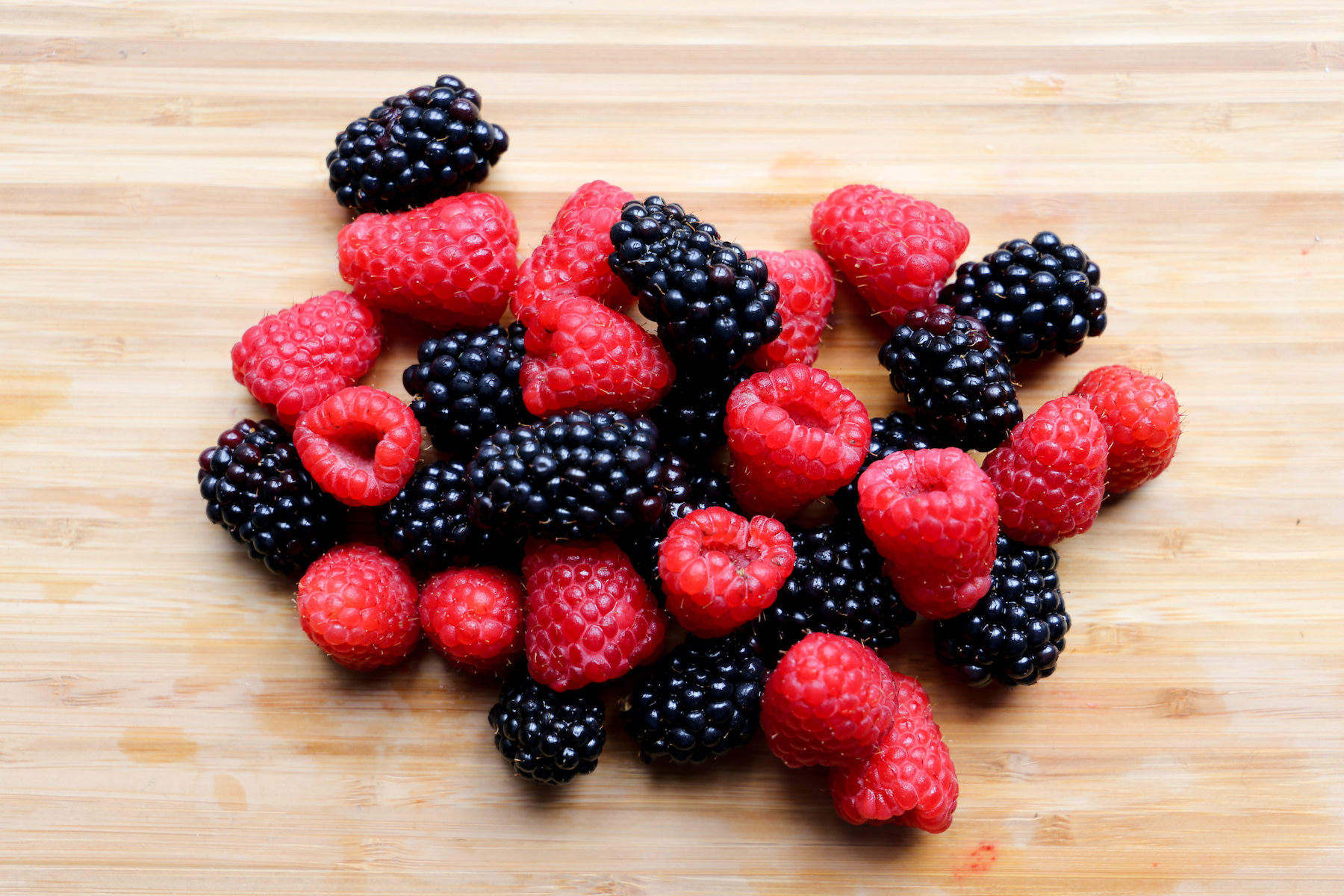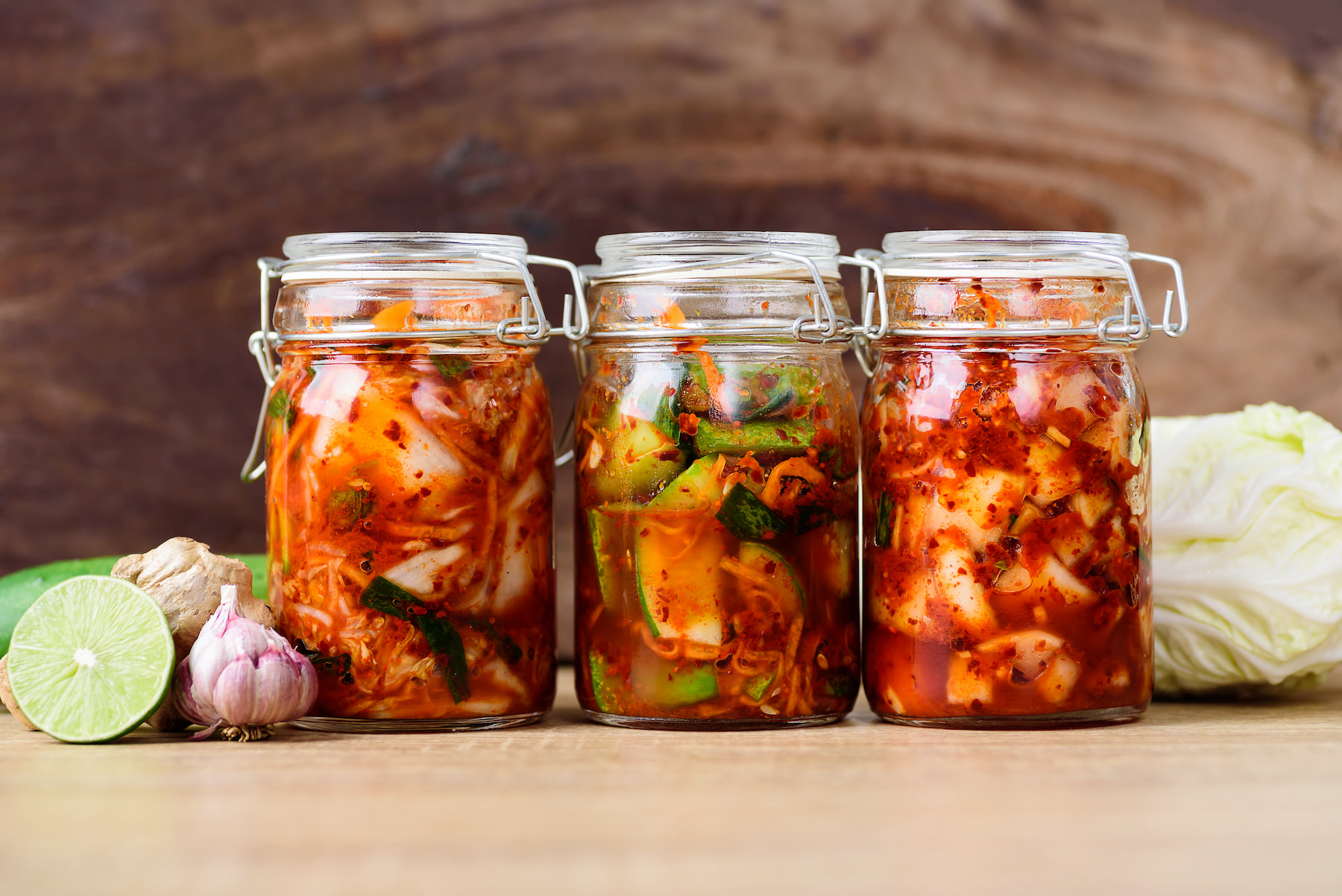
Arx0nt / Moment via Getty Images
What Is Gut Health? Experts Explain Why It’s Important—and How to Improve It
Gut health pros break down what to eat (as well as how to move, rest, and sip) to support your microbiome.
By Karla Walsh•
What Is Gut Health?
Why Is Gut Health Important for Your Wellbeing?
What Causes Poor Gut Health?
How to Improve Your Gut Health
The Best Foods for Gut Health
The Worst Foods for Gut Health
The Takeaway
Chances are high that at one point or another, you’ve been told to “listen to your gut.” While that might just seem like a pat piece of advice akin to “the grass is always greener,” we’re learning more and more about how important your gut is to your overall physical and mental health.
An increasing amount of scientific research over the last decade illustrates that everything from our mood to our metabolism is affected by what’s going on inside our gut, whether good or bad. Indeed, “gut health has a huge impact on the entire body,” says Andrew Boxer, MD, a gastroenterologist at Gastroenterology Associates of New Jersey.
But what is gut health, exactly, and how can our daily habits best support it? Read on for guidance from doctors and registered dietitians so you can fuel, move, and recover in ways that help you build and bolster your good gut bacteria.
What Is Gut Health?
Gut health references the health of your gastrointestinal (GI) tract and all the microorganisms living in it, according to the Cleveland Clinic.
While there’s currently not one universal scientific definition of gut health, if you have a healthy gut, it generally means that your body can effectively digest and absorb food, you don’t have a GI illness, you have healthy intestinal microbiota, and that your general immunity and wellbeing are intact, according to an article published in BMC Medicine.
Wait, What Is the Gut, Again?
When you think of your gut, you might first think of your stomach, small intestine, and large intestine. Aside from those important digestive organs, trillions of microorganisms make up your gut and play key roles throughout the body.
When talking about all things gut health, many tend to use the terms “microbiota” and “microbiome” interchangeably. But technically, they’re two different things, explains Desiree Nielsen, RD, a Vancouver, Canada-based registered dietitian and the author of Good for Your Gut.
Microbiota (aka “tiny life”) are the actual microbes living in us and on us. The microbiota is mostly bacteria; however, viruses, archaea, and fungi are also all part of a normal and healthy microbiota, Nielsen says.
Microbiome (colloquially, our “gut”) is the community of microbiota and their ecosystem within our esophagus, stomach, small intestines, and large intestines. It’s nearly impossible to quantify this, but researchers believe we have somewhere around 100 trillion microbiota in our gut. “There are more bacterial cells in the gut microbiome than human cells in the body,” Dr. Boxer says.
What happens in the gut doesn’t stay in the gut, though. “Our microbiome is constantly adapting to its environment: our bodies,” Nielsen says. “Our stress levels, cycles of sleeping and eating, as well as medications and disease states, all influence which bacteria can survive in our gut. Some of these factors are out of our control, but for many of us, the foods we choose to eat are well within our ability to change…making nutrition a great option for helping to shape a healthy gut microbiome.”
Nutrition isn’t the only factor you should keep top of mind to mind your microbiome, though: lifestyle choices play a part, too. (More on that later!)
Why Is Gut Health Important for Your Wellbeing?
So why all the hype about gut health? “In research, we see a lot of connections between poor gut health—whether that shows up as constipation, irritable bowel syndrome, or microbiome changes—and other chronic issues such as type 2 diabetes or anxiety,” Nielsen says. She cautions, though, that while this is a burgeoning field of research, scientists are still determining whether these conditions and symptoms develop at the same time due to diet or other issues.
Here are just a few of the key connections between gut health and wellbeing:
Immunity
A whopping 70 to 80 percent of our immune system resides within our gut, according to a 2021 study in Nutrients. Our gut bacteria interact with the food that we eat, Dr. Boxer explains, and as a result, they produce complex chemicals called cytokines which can impact the body’s natural defenses by either increasing or taming inflammation levels.
Digestive Health
When you think of your gut and its impact on your body, there’s a good chance you think of digestive health. Our gastrointestinal (GI) tract is an approximately 30-foot long (yes, 30!) muscular tunnel that runs from our mouth to our anus, the National Institutes of Health explains.
As food and drink make their way through this tube, our gut microbes help break things down into smaller pieces for the body to absorb and use for energy, cell repair, muscle growth, and more. If there are any back-ups along the way, your tummy will probably tell you. That’s because our gut bacteria have a huge influence on our digestion and can trigger things like constipation, gas, heartburn, and bloating when things are out of whack, per Johns Hopkins Medicine.
Chronic Diseases
Gut health may even relate to our risk for many chronic diseases, says Cynthia Sass, RD, a board-certified sports dietitian based in Los Angeles.
Research presented at the July 2023 Alzheimer’s Association International Conference, for example, found that study participants who had bowel movements every three or more days rather than daily had significantly worse cognition and may be at higher risk of dementia. However, it’s far too early to say whether that’s simply a coincidence, whether those who have early signs of cognitive decline tend to struggle with less frequent bowel movements, or if there is a cause-effect relationship.
Mood and Mental Health
What we do know: The “gut-brain axis,” aka the conversation between our microbiome and our mind, most definitely exists. Nielsen says that an incredible 90 percent of the communication between the two is actually moving from the gut to the brain.
Studies suggest that around 95 percent of our body’s serotonin (the “feel good” neurotransmitter) is made in our guts, and other mood-boosting hormones like oxytocin and dopamine are pumped out when your microbiome is flourishing. Under adverse conditions, like what might occur after a consistent menu of less-than-stellar foods, our bacteria and our spirits might be sad.
Athletic Performance
As if it didn’t have enough to do, your gut may also play a role in how hard you go during a workout—and how you feel afterwards. According to research published in the journal Sports Health, your gut microbiota has the power to improve athletic performance and decrease recovery time.
Researchers also believe your gut is an important part of muscle maintenance and turnover, which is particularly important for people who engage in static sports like weightlifting. It’s also involved in protein metabolism (which is what happens when your body breaks down and uses protein), another key part of muscle growth and recovery.

Peloton App
Access thousands of classes with no equipment needed.
What Causes Poor Gut Health?
While there are some genetic elements that help determine our gut health profile, “the most common causes of poor gut health are under our control,” Dr. Boxer says. These include:
Poor diet
Smoking or vaping
Lack of exercise
High levels of alcohol use
Lack of high-quality sleep
Excess stress
Any or all of these factors can impair gut function, harm the gut microbiome, and decrease immunity, Dr. Boxer says.
Signs of an Unhealthy Gut
As you might guess (based on that long list of links between gut health and overall wellness), there are many signs and symptoms that an individual might have poor gut health. Dr. Boxer says that the symptoms of poor gut health include but are not limited to:
Chronic abdominal pain
Stomach pain while eating
Chronic constipation
Pain during bowel movements
Frequent diarrhea
Chronic fatigue
Frequent bouts of nausea
Unexplained weight loss or gain
Extreme levels of gas and/or bloating
Sleep challenges
Low mood
Skin rashes or conditions, such as eczema, psoriasis, or acne
The Risks of Having Poor Gut Health
While a short-term shift in gut bacteria is totally normal (sometimes you need those antibiotics to conquer that UTI or strep throat, after all!), over time, less-than-optimal gut health can do a number on your body.
While it’s impossible to say what levels of gut health might prevent or promote illness, as a general rule, a less robust and varied gut microbiome tends to put someone at higher risk for a slew of diseases, including two of the most common causes of death in the US: diabetes and heart disease. An unhealthy gut environment has also been linked to cancer and irritable bowel syndrome (IBS). That’s why it’s key to maintain healthy habits that are good for your gut—and thus, good for your whole body.
How to Improve Your Gut Health
There are two especially important elements of promoting a healthy gut: Having a balanced diet and following healthy lifestyle habits.
1. Follow a Balanced Diet with Plenty of Fiber
"The most powerful and evidence-based way to boost gut health is to increase fiber intake and eat a wide variety of plants," says Nielsen, who also recommends taking a holistic approach to better gut health, such as eating gut-friendly foods and adopting healthy lifestyle habits that we discuss below.
When it comes to our gut health, nutrition is especially important. That’s because whatever we do not digest and absorb travels through our gut and is “eaten” by our gut microbiota. Only plant foods contain fiber to feed our gut microbes. “When you understand this, you realize just how powerful eating more plants is for gut health,” Nielsen says. “Our gut bacteria can begin to change in as little as a day or two following dietary changes,” like eating another serving of fruits and vegetables each.
That said, there’s no need to get daunted by plotting out your plates for the next several weeks to ensure you have the “perfect” array of gut-healthy ingredients. Nielsen shares that no one meal is going to make or break your gut health. “You don’t have to worry about a weekend ice cream or an occasional bag of chips,” she says. “Instead, focus on what to eat more of.” (Find some of those gut-healthy foods to keep on hand below.)
2. Make Smart Lifestyle Choices
Healthy nutrition choices aren’t the only way to improve your gut health. Beyond your bites, the following strategies are wise moves to give your gut some love:
Move your body on a regular basis
Integrate stress-relieving practices
Aim for seven to nine hours of quality shut-eye
Stay properly hydrated
Steer clear of fad diets, overly restrictive diets, and unproven supplements
The Best Foods for Gut Health
Nielsen advises her clients to seek out variety and prioritize plant foods, including fruits, vegetables, nuts, seeds, legumes, and whole grains. A 2018 study in mSystems reinforces this advice: Researchers found that participants who ate 30 or more different plants per week (herbs and spices count!) appeared to experience a strong, positive effect on the overall health and diversity of their microbiomes.
When it comes to the best foods for your gut health, the more variety, the better. But when pressed to choose their favorites, the experts we spoke to named the following as some of the best foods for gut health:
1. Pulses

Janine Lamontagne / E+ via Getty Images
“Pulses” is the umbrella term for all types of beans, lentils, dry peas, and chickpeas, and is a favorite food group of Sass and Nielsen. “They are some of the highest fiber foods out there,” Nielsen explains. “Beans contain both soluble and insoluble fibers. These fibers help to regulate digestion and elimination, sweeping things through the gut while also helping to bind unwanted substances like cholesterol and remove it from our system.”
The fiber in pulses is also beneficial because it gets fermented by gut microbes into compounds called short-chain fatty acids. These reduce inflammation within the gut and help maintain a strong intestinal barrier, which prevents harmful substances from being absorbed from the gut into the bloodstream, Sass explains. “They provide plant protein, vitamins, minerals, and anti-inflammatory antioxidants, too,” she continues. “Consuming pulses has been linked to a reduced risk of chronic diseases and improved longevity.”
2. Oats

OatmealStories / RooM via Getty Images
“Oatmeal is one of my favorite gut-health foods because it tends to be gentle on sensitive guts. But gentle doesn’t mean ineffective,” Nielsen says. “Oats contain a special fermentable soluble fiber called beta-glucan, which has been shown to promote a healthy microbiome while also supporting lower cholesterol levels and general digestive health.”
3. Berries

Emma Farrer / Moment via Getty Images
All berries are beneficial, as they contain phytochemicals known as flavonoids that appear to lower inflammation in the digestive tract and increase the population of good bacteria in our microbiome. If Nielsen had to select just a couple of favorites, she’d pick raspberries and blackberries because they are particularly high in fiber, with about 8 grams of fiber per cup.
4. Probiotic Foods

Nungning20 / iStock / Getty Images Plus via Getty Images
Probiotics are live microorganisms in food that add to the gut microbiome. “Eating probiotic-rich foods has been shown to reshape the makeup of the gut microbiome in ways that enhance immune function, reduce inflammation, and help prevent or manage bowel diseases,” Sass says. Her go-to probiotic foods include fermented vegetables (like kimchi, sauerkraut, and pickles), yogurt, kefir, buttermilk, miso, and kombucha.
5. Prebiotic Foods

La Bicicleta Vermella / Moment via Getty Images
Prebiotic foods, conversely, act as the “food” to fuel the beneficial microbiota. “They also shift the intestinal pH, which prevents harmful microbes from growing in the gut,” Sass says. Asparagus, underripe bananas, garlic, and onions are all strong sources.
The Worst Foods for Gut Health
Unless you have a food allergy or intolerance, there’s no need to deem any food off-limits. There are some foods that you might consider limiting, though, if you’re hoping to prioritize your gut health more. Those include:
Ultra-Processed Foods
Definitions for this category vary, but in general, ultra-processed foods are items that don’t actually resemble whole foods in their natural state. Instead, they’re manufactured from five or more ingredients, often large amounts of sodium, sugar, fat, oils, and/or flavorings to yield a finished product that’s “hyper-palatable,” or something we crave. Ice cream, potato chips, candy, and soft drinks are a few examples.
“Ultra-processed foods reduce the type and variety of good gut microbes compared to diets rich in minimally processed plant foods,” Sass explains. “This shift promotes inflammation in the gut.”
Red Meat (Especially Processed Red Meat)
While any food can be enjoyed in moderation as part of a gut-healthy diet, a dietary pattern high in red meat isn’t a good idea for gut health, Nielsen says. “Red meat is high in saturated fat, and dietary patterns rich in saturated fat are harmful to the gut,” she explains. “At the same time, red meat has been shown to alter gut barrier function and inflammation levels. The gut microbiome, in turn, may begin to favor more harmful bacteria.”
Processed red meats like bacon, sausage, and pepperoni may also increase levels of microbes in the gut that heighten inflammation and raise the risk of colorectal cancer, Sass adds. If you choose to eat red meat, shoot for no more than one to two 4-ounce servings per week, Nielsen suggests.
The Takeaway
Our gut comprises more bacteria than the number of cells that make up our bodies. The sizable population of microbiota in our microbiome has the potential to significantly help or hamper our overall physical and mental health. As Sass describes it, “The gut is like the control center of the body.” Reinforcing gut health requires a multifaceted approach, including eating more plant foods, incorporating physical activity, seeking out stress-relieving activities, getting enough sleep, avoiding smoking and excess alcohol consumption, and abstaining from fad diets.

Peloton App
Access thousands of classes with no equipment needed.
This content is for informational and educational purposes only and does not constitute individualized advice. It is not intended to replace professional medical evaluation, diagnosis, or treatment. Seek the advice of your physician for questions you may have regarding your health or a medical condition. If you are having a medical emergency, call your physician or 911 immediately.
Get our latest health stories straight to your inbox
Enter your email to get articles, expert-backed tips, and updates from Peloton sent to your inbox.
By providing your email address, you agree to receive marketing communications from Peloton.
For more about how we use your information, see our Privacy Policy.






